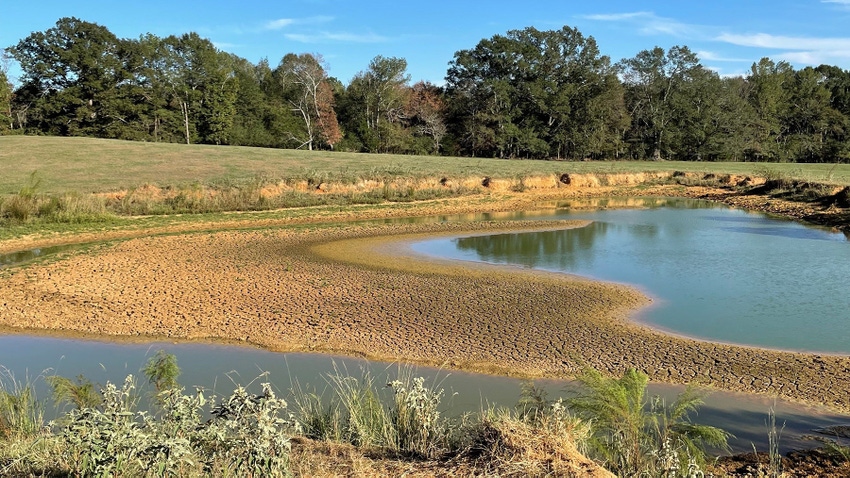
Mike Brown cautions Mississippi farmers to be conservatively optimistic regarding an end to the state’s historic drought, a drought he says is the worst in 50 years. The current El Niño climate pattern offers hope for relief.
Brown, a Mississippi State University meteorology professor who serves as the state’s climatologist, tepidly describes the 2024 rain outlook as “not terrible.” With the El Niño bringing the jet stream closer to the South, more storms should be in the offing.
“We are starting to see that activity pick up,” Brown tells Farm Press. “If we stay where we are, and if every six to 10 days a cold front pushes through and gives us a half inch to an inch of rain, it will certainly help with our recovery. The outlook isn’t bleak, but we are not there yet. It still has to happen, and everything indicates it will. Recent rains have helped mitigate the situation, but much more is needed.”
The drought has been widespread for months. As of early December, 100% of Mississippi is in at least moderate drought, he said. This breaks down as 20% in an exceptional drought (the highest level), 60% in extreme drought, about another 20% in severe drought and a small percentage in a moderate drought.
Mississippi’s farmers have felt the drought’s sting. Soybeans in the southwest section of the state were hardest hit because of no irrigation in that part of the state, Brown said. The Delta region fared better due to its ability to irrigate. Pasture lands were also hard hit. The drought affected catfish farmers to a lesser degree, but they generally had the means to fill their farms, he said.
The cattle industry was also affected. Cattle in the southwest were either moved out of state or sold off early. At the time, the beef cattle market was good, Brown said, so farmers, while they took losses, didn’t take enormous losses because of the strong market.
Brown works closely with Extension agents and fairly close with farmers. He regularly visits farmers during the growing season to discuss how the previous year’s climate affected yields. Extension agents help him in terms of ground truthing the impact of climate, which helps him write reports for the Drought Monitor.
Surprisingly, tropical storms didn’t bring relief this year. Brown noted that this year was the first of his 22 years in Mississippi that a land-falling tropical system didn’t hit the state. Additionally, a long-term concern is the level of the Mississippi River. Brown will be monitoring the snowfall in the Upper Midwest this winter to see how much relief it might bring to the Delta aquifer.
Brown’s current concern is the state’s deep soil profiles.
“If we continue to get rain, we will begin to recharge deeper profiles,” he said. “If we don’t we will be back into an exceptional drought.”
About the Author(s)
You May Also Like






